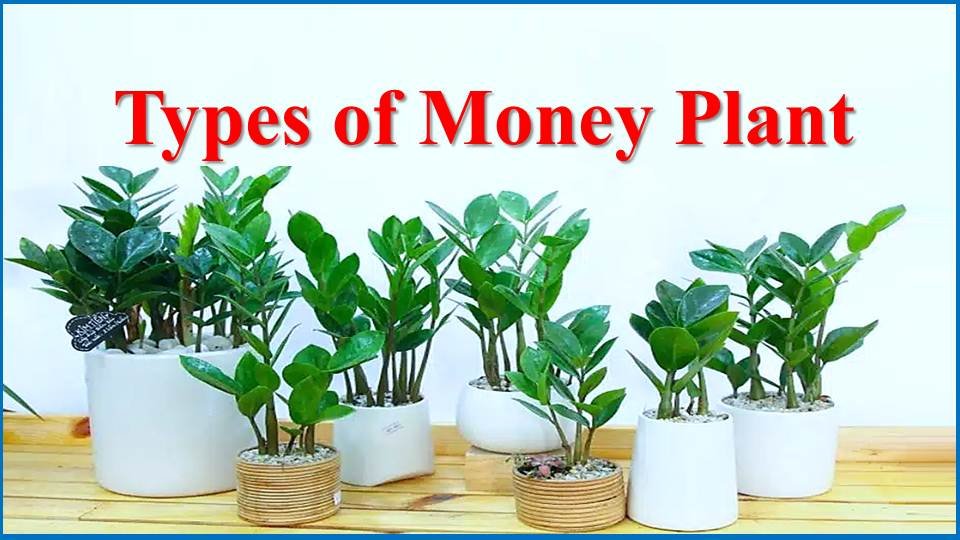Embrace opulence with our curated selection of the top 13 different of Money Plant varieties for wealth and positive energy. Elevate your life with these lush wonders!
Money plants have long been associated with prosperity and positive energy. These green wonders not only enhance the aesthetics of your living space but also attract good luck and wealth. In this article, we will delve into the world of money plants, explore their connection with prosperity and good vibes, and unveil the money plant types that can usher abundance into your life.
What is Money Plant ?
Popular indoor plants from South Africa, also known as Crassula ovata. They are typically planted in small pots as ornamental houseplants and are distinguished by their rich green, oval-shaped leaves. These plants are regarded as auspicious in many cultures and are thought to bring financial wealth.
| S. No. | Common Name of Money Plant | Scientific Name of Money Plant |
| 01. | Jade Pothos | Crassula ovata |
| 02. | Silver dollar vine plant | Lunaria annua |
| 03. | Money tree | Pachira Aquatica |
| 04. | Manjula Pothos | Epipremnum Aureum ‘Manjula’ |
| 05. | Lucky Bamboo | Dracaena Sanderiana |
| 06. | N’joy Pothos | Epipremnum pinnatum ‘Njoy’ |
| 07. | Spider Plant | Chlorophytum Comosum |
| 08. | Cebu Blue Pothos | Epipremnum pinnatum ‘Cebu Blue’ |
| 09. | Rubber Plant | Ficus elastica |
| 10. | Silver Satin Pothos | Scindapsus pictus |
| 11. | Monstera plant | Monstera deliciosa |
| 12. | Swiss cheese money plant | Epipremnum aureum ‘Swiss Cheese’ |
| 13. | Pennywort | Centella asiatica |
- Know More: Why Money Plant is called Money Plant ?
The Connection Between Money Plants and Wealth:
The association between money plants and wealth can be traced back to ancient folklore and traditional beliefs. Feng Shui, the Chinese art of harmonizing energy, considers money plants as a symbol of good luck and prosperity. The round, coin-shaped leaves of the Jade plant, for example, resemble money and are believed to attract abundance and wealth.
Importance of Good Vibes:
Beyond their monetary significance, money plant types are also valued for their ability to create positive vibes in a living space. They purify the air, reduce stress, and promote a sense of well-being. Good vibes are essential for maintaining a harmonious environment, which in turn can contribute to your overall prosperity.
Different Types of Money Plant | Money Plant Varieties
Are you curious to know how many types of money plant? Here we are presenting the different types of money plant with pictures also know as money plant varieties.
1. Jade Pothos (Crassula Ovata)
The Jade Plant, scientifically known as Crassula ovata, is a popular indoor plants for home and gardens . Known for its distinctive appearance and ease of care, the Jade Plant is celebrated for its thick, fleshy leaves and its ability to thrive in a variety of environments.
In addition to its distinctive foliage, the Jade Plant can also produce small, star-shaped flowers in clusters. These flowers, which may be white or pale pink, emerge on mature plants under the right conditions, typically in late winter or early spring.
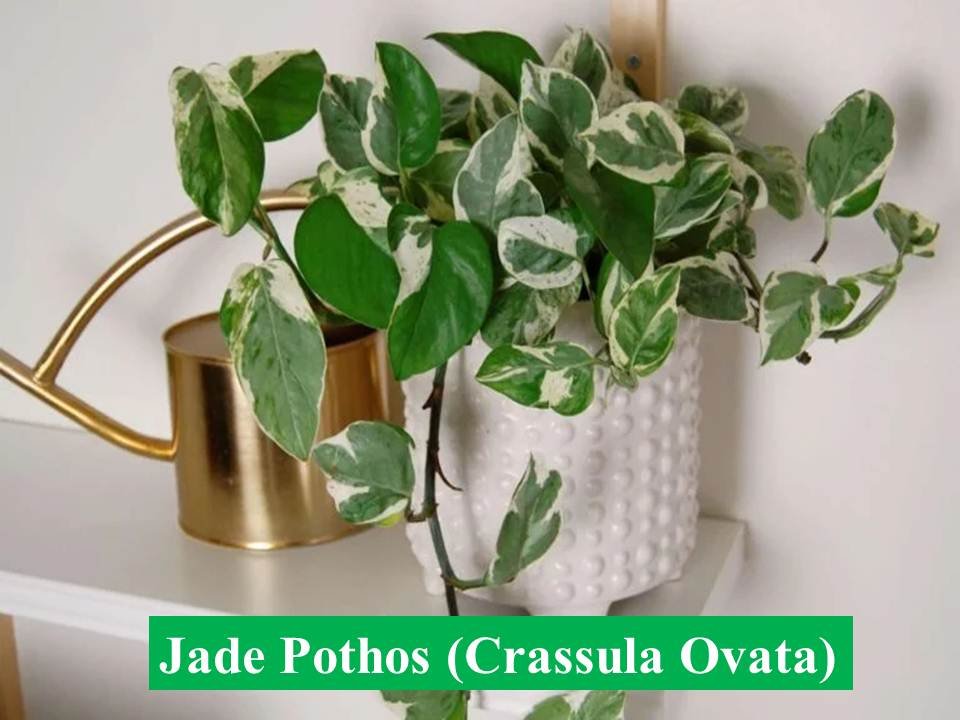
2. Silver dollar vine plant (Lunaria annua)
The Silver Dollar Vine, scientifically known as Lunaria annua, is a captivating and unique flowering plant that is treasured for its enchanting silvery-white seed pods that resemble delicate coins. Also referred to as the Money Plant or Honesty Plant, it is celebrated for its ornamental value and distinctive appearance.
However, it is the plant’s seed pods that truly steal the show. As the flowers fade, the seed pods develop and gradually transform into flat, round, translucent disks that glisten like silver or delicate coins. These papery seed pods add a touch of magic to the garden and are often used in floral arrangements or crafts.
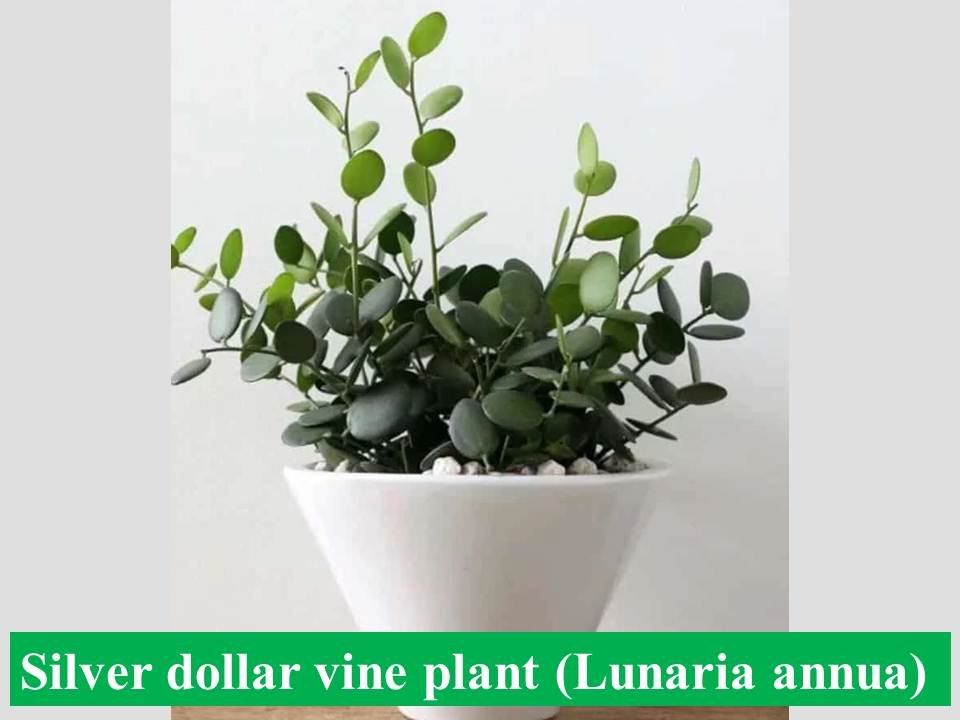
3. Money Tree (Pachira Aquatica):-
The Money Tree, scientifically known as Pachira aquatica, is a popular and symbolic indoor plant that is believed to bring good luck, prosperity, and positive energy. Also known as the Malabar Chestnut or Guiana Chestnut, it is celebrated for its distinctive braided trunk and its lush, hand-shaped leaves.
The leaves of the Money Tree are compound, consisting of several smaller leaflets arranged in a radiating pattern, resembling an open hand. These leaves are vibrant green and contribute to the plant’s overall ornamental value.
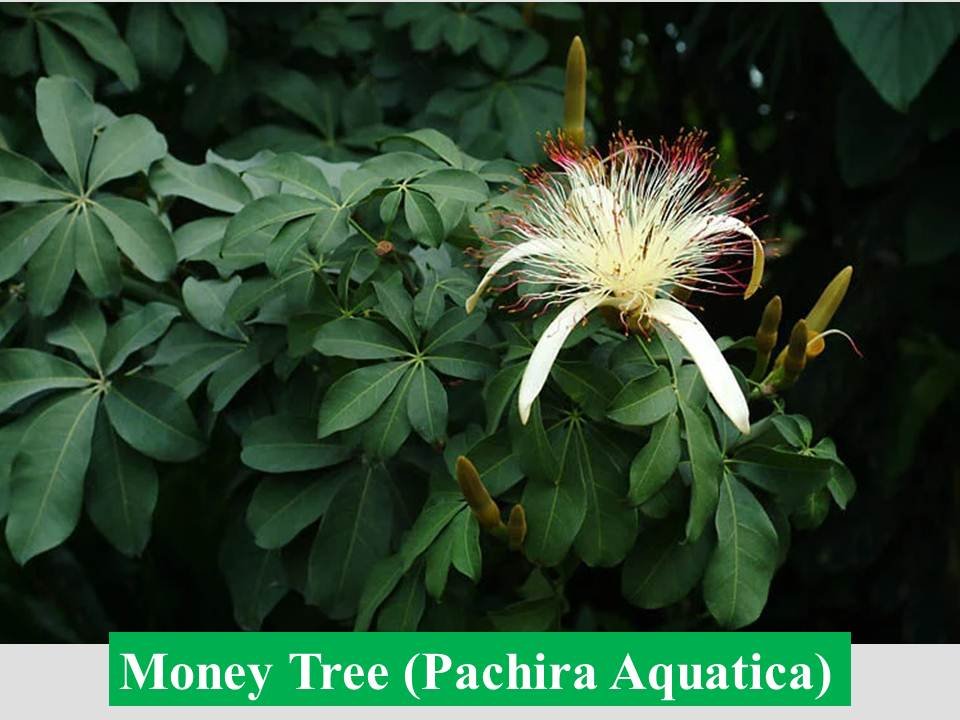
4. Manjula Pothos (Epipremnum Aureum ‘Manjula’)
The Manjula Pothos, scientifically known as Epipremnum aureum ‘Manjula’, is a captivating and sought-after variety of Pothos, beloved for its stunning variegated leaves and trailing growth habit. Also referred to as the Manjula Epipremnum, this plant is celebrated for its elegant foliage, making it a popular choice for indoor gardens and spaces.
The Manjula Pothos is a member of the Araceae family and is known for its heart-shaped leaves with distinct variegation. The leaves are primarily green with patches of creamy white and silvery-gray, creating a striking and eye-catching pattern. The variegation is often marbled or swirled, adding to the plant’s overall aesthetic appeal. As a trailing vine, the Manjula Pothos gracefully drapes over containers or can be trained to climb on supports.
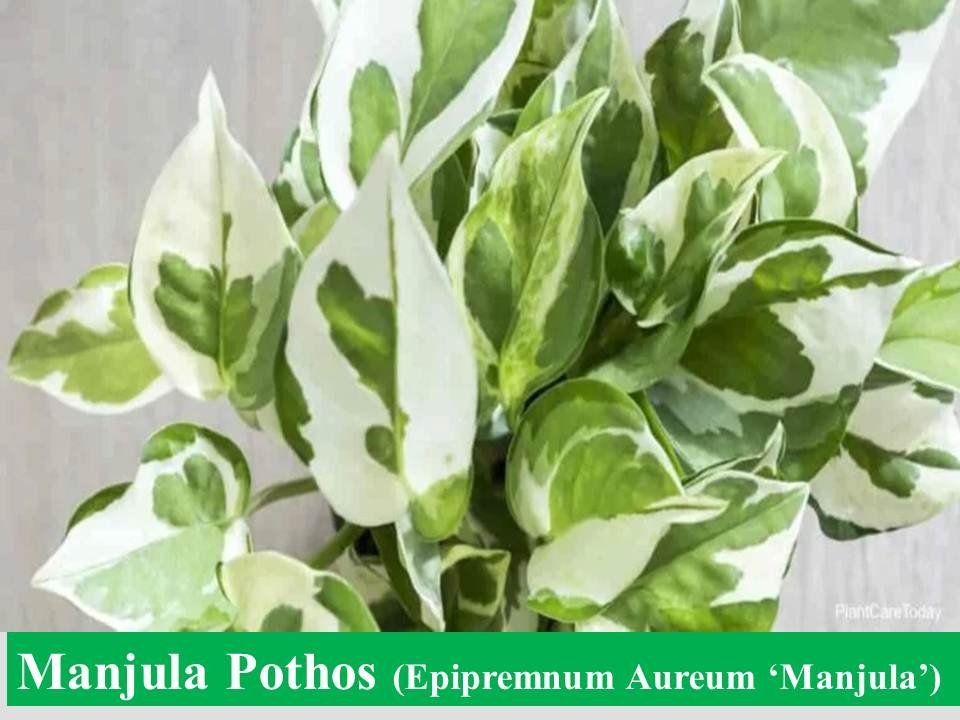
5. Lucky Bamboo (Dracaena Sanderiana)
Lucky Bamboo, scientifically known as Dracaena sanderiana, is a popular and symbolic indoor plant that is believed to bring good luck, prosperity, and positive energy. Despite its name, Lucky Bamboo is not actually bamboo; it belongs to the Dracaena genus and is celebrated for its graceful stalks and vibrant green foliage.

Also Read…
- Plants For Study Table that Boost Your Productivity
- Top Flowering Trees in India
- Low light hanging plants to make your room crunchy
6. N’joy Pothos ( Epipremnum pinnatum ‘Njoy’)
The N’Joy Pothos, scientifically known as Epipremnum pinnatum ‘N’Joy’, is a delightful and eye-catching money plant variety of Pothos, beloved for its attractive variegated leaves and cascading growth habit. Also referred to as the Snow Queen Pothos or Marble Queen Pothos, this plant is celebrated for its elegant foliage and ease of care, making it a popular choice for indoor gardens and spaces.
The N’Joy Pothos is a member of the Araceae family and is recognized for its heart-shaped leaves with striking variegation. The leaves are predominantly green with patches of creamy white and silvery-gray, creating a captivating and visually appealing pattern. The variegation can vary from leaf to leaf, adding to the plant’s charm. As a trailing vine, the N’Joy Pothos elegantly drapes over containers or can be trained to climb on supports.
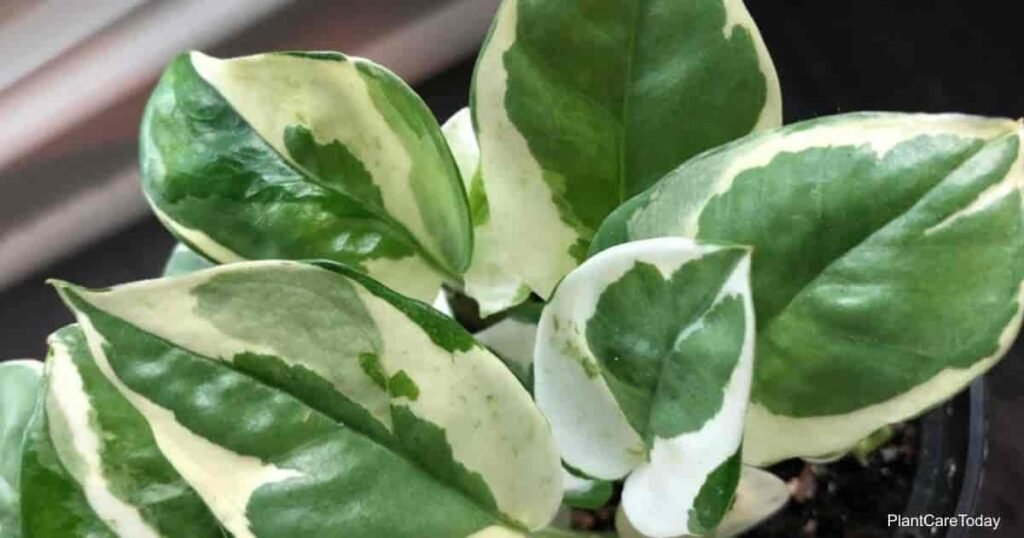
7. Spider Plant (Chlorophytum Comosum)
The Spider Plant, scientifically known as Chlorophytum comosum, is a popular and enduring indoor plant that is celebrated for its unique arching leaves and air-purifying qualities. Also referred to as the Airplane Plant or Ribbon Plant, it is recognized for its easy-care nature and ability to thrive in a variety of indoor conditions.
The Spider Plant is characterized by its long, arching leaves that resemble the legs of a spider, giving the plant its distinctive name. The leaves are typically green with white or cream-colored stripes, creating a striking and attractive contrast. As the plant matures, it produces long stalks that bear small plantlets, or “pups,” at their tips. These plantlets can be easily propagated to create new Spider Plants.
Read More:
8. Cebu Blue Pothos (Epipremnum pinnatum ‘Cebu Blue’)
The Cebu Blue Pothos, scientifically known as Epipremnum pinnatum ‘Cebu Blue’, is a captivating and sought-after variety of Pothos, celebrated for its striking blue-green foliage and trailing growth habit. Also referred to as the Centipede Tongavine, this plant is known for its unique and alluring appearance, making it a popular choice for indoor gardens and spaces.
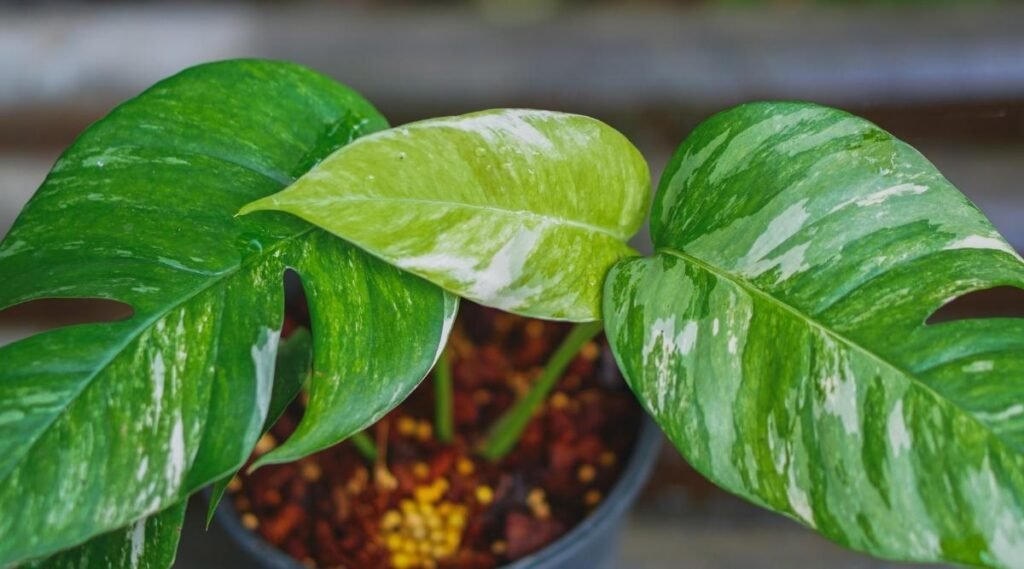
9. Rubber Plant (Ficus Elastica)
The Rubber Plant, scientifically known as Ficus elastica, is a classic and beloved indoor plant that is celebrated for its glossy, dark green leaves and striking presence. Also referred to as the Rubber Tree, it is recognized for its air-purifying qualities and its ability to thrive in a variety of indoor conditions.
The Rubber Plant is characterized by its large, leathery leaves that have a glossy sheen. The leaves are typically deep green in color, although there are variegated varieties with creamy or white margins. As the plant matures, it develops an attractive woody trunk, adding to its overall aesthetic appeal. The Rubber Plant can grow quite tall and can be pruned to maintain a desired height or shape.

10. Silver Satin Pothos (Scindapsus pictus)
The Silver Satin Pothos, scientifically known as Scindapsus pictus ‘Silver Satin’, is a captivating and sought-after variety of Pothos, cherished for its stunning silver-patterned leaves and trailing growth habit. Also referred to as the Silver Vine, this plant is celebrated for its elegant foliage and ease of care, making it a popular choice for indoor gardens and spaces.
Its unique coloration adds a touch of elegance and charm to homes, offices, or any setting where its graceful vines can cascade or climb.
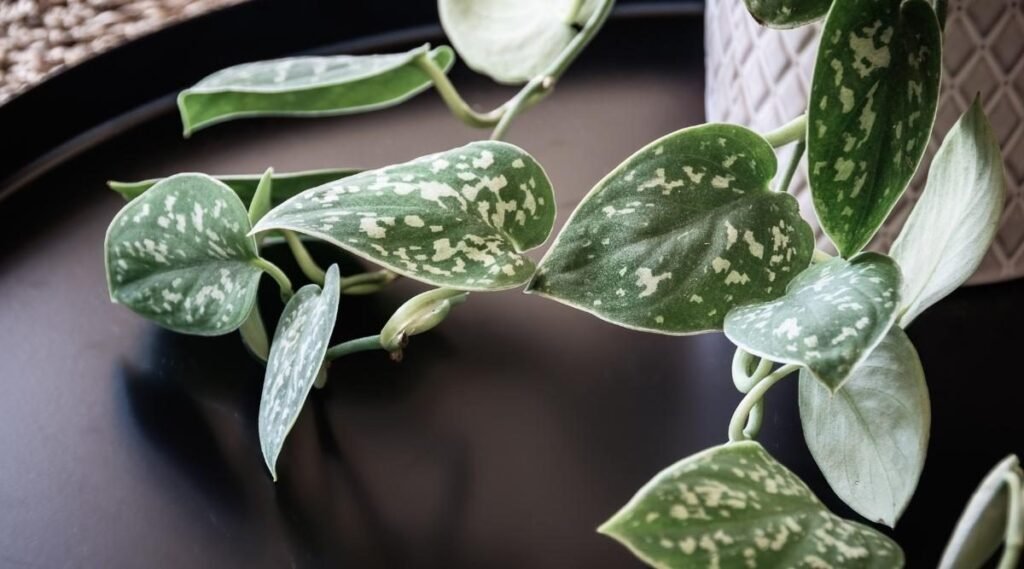
11. Monstera plant (Monstera deliciosa)
The Monstera plant, scientifically known as Monstera deliciosa, is a captivating and iconic indoor plant cherished for its distinctive split leaves and tropical allure. Often referred to as the Swiss Cheese Plant due to the unique patterns on its foliage, the Monstera is celebrated for its striking appearance and ability to add a touch of jungle-like charm to interior spaces.
The Monstera plant’s distinctive split leaves and lush growth make it a captivating and desirable addition to indoor spaces. Its tropical charm adds a touch of exotic elegance to homes, offices, or any setting where its sprawling vines and unique foliage can thrive.
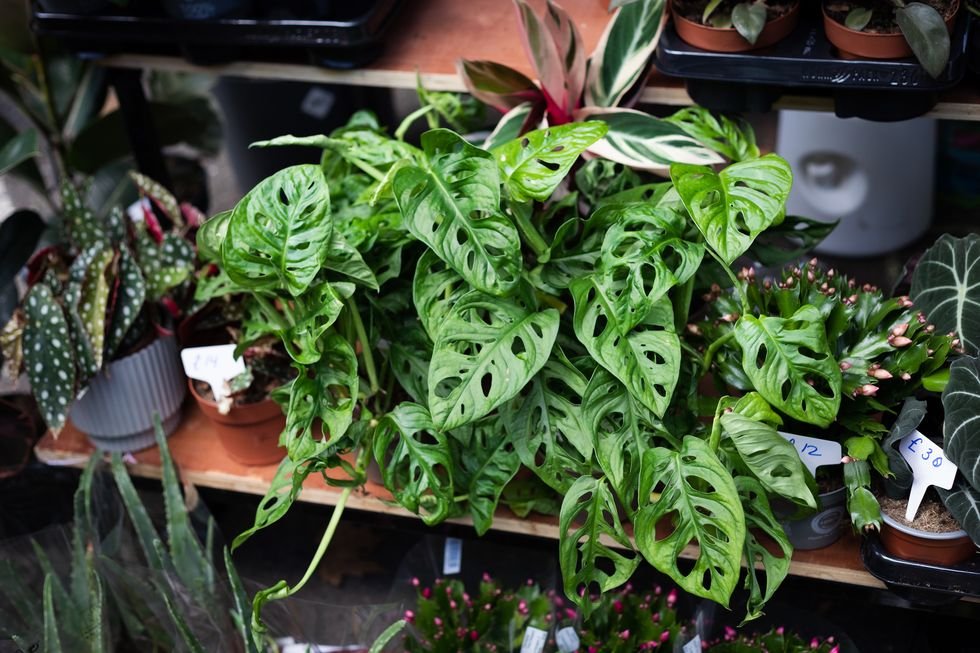
12. Swiss cheese money plant (Epipremnum aureum ‘Swiss Cheese’)
The Swiss Cheese Money Plant, scientifically known as Epipremnum aureum ‘Swiss Cheese’, is a captivating and sought-after variety of Pothos, beloved for its unique combination of fenestrated leaves and trailing growth habit. This plant is a delightful fusion of the iconic Swiss Cheese Plant (Monstera deliciosa) and the popular Money Plant (Epipremnum aureum), resulting in a stunning and visually appealing foliage that adds a touch of tropical charm to indoor gardens and spaces.
The Swiss Cheese Money Plant inherits its name from the distinct fenestrations, or holes, that develop in its large, heart-shaped leaves. These fenestrations resemble the patterns found on the leaves of the Monstera (Swiss Cheese Plant) and give the Swiss Cheese Money Plant its unique and captivating appearance.
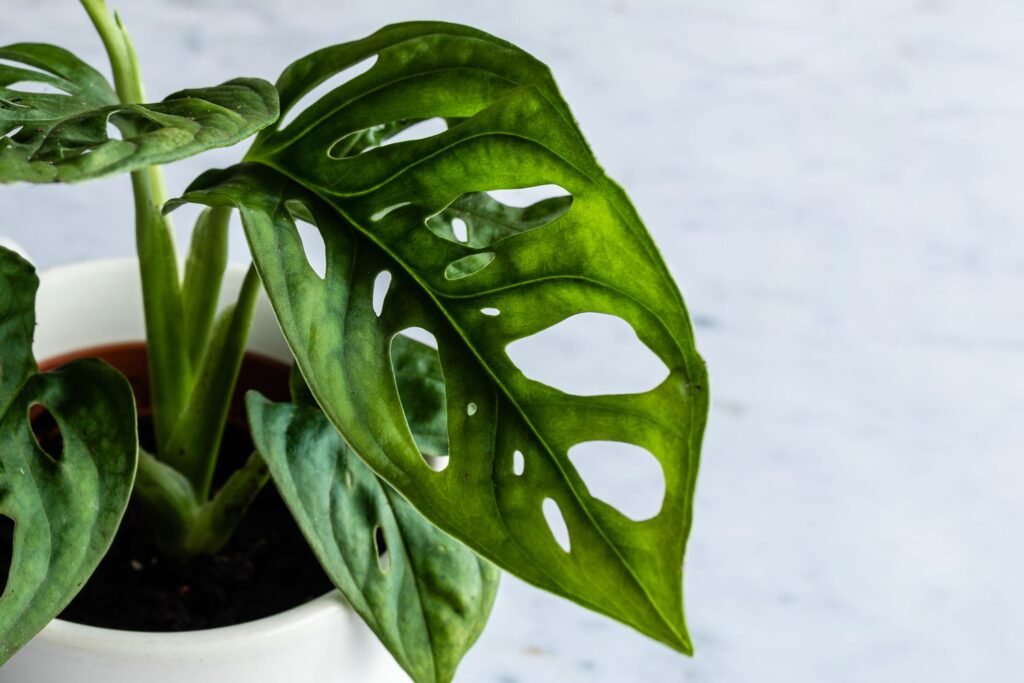
Also Read
- Most Expensive Flower in the World: The Blooming Beauties
- 15 Night Blooming Flowers | Flowers that Bloom at Night
13. Pennywort (Centella asiatica)
Pennywort, scientifically known as Centella asiatica, is a remarkable and herbaceous plant with a long history of traditional medicinal and culinary uses. Also referred to as Gotu Kola, Indian Pennywort, or Asiatic Pennywort, this plant is revered for its health benefits and is celebrated for its unique appearance and versatility.
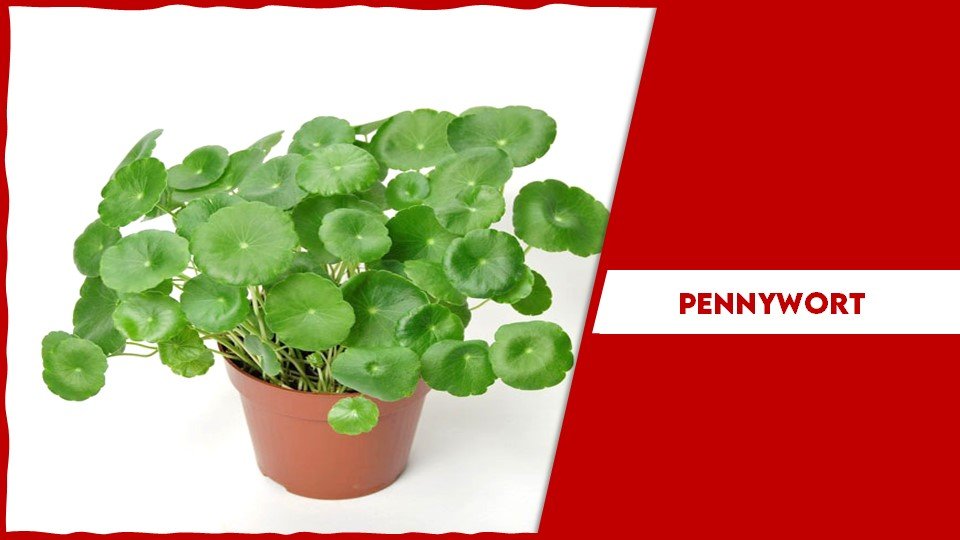
Placing Money Plants for Maximum Benefits | Money Plant Benefits
To harness the full potential of money plants, strategically place them in areas associated with wealth and prosperity. The southeast corner of your home or office is considered an ideal spot as per Feng Shui principles.
Conclusion
Incorporating money plant into your living space can significantly enhance your surroundings’ positive energy and attract prosperity. These green companions not only purify the air but also serve as a constant reminder of the abundance and good vibes they bring. Choose from the money plant variety mentioned above, and invite wealth and positivity into your life.
1- How often should I water my money plant?
Water your money plant when the topsoil feels dry, usually once a week.
Can I keep a money plant in my bedroom?
Yes, you can keep a money plant in your bedroom as it helps create a peaceful and positive environment.
Are money plants easy to care for?
Yes, most money plants are low-maintenance and easy to care for
Latest Post
- June Issue (2025) – Times of Agriculture Magazine
- How to Create Modern Commercial Greenhouse Agriculture
- REACH NEW HEIGHTS WITH YOUR BUSINESS AT VIETSTOCK EXPO & FORUM 2025
- Revamping Waste: A wish list This World Environment Day
- Types of Banana in India : Health & wallet friendly fruit
- May Issue (2025): Times of Agriculture
- How to Grow Oyster Mushrooms at Home in India
- Top 10 Profitable Fruit Farming in India
- 5 Unique Hobby Farm Animals You Should Consider Domesticating

